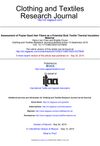 12 citations,
September 2010 in “Clothing and Textiles Research Journal”
12 citations,
September 2010 in “Clothing and Textiles Research Journal” Poplar seed hair fibers could be an eco-friendly insulation for textiles.
16 citations,
October 2021 in “Trends in biotechnology” Future hair products will use ecofriendly proteins and peptides to improve hair health and appearance.
13 citations,
September 2008 in “PubMed” Japanese women's curved hair has an uneven internal structure and varying amino acid composition.
4 citations,
July 2010 in “International Journal of Cosmetic Science” Curved human hair has different structures on its convex and concave sides.
September 2019 in “Mağallaẗ al-ʿulūm al-ṭabīʿiyyaẗ wa-al-ḥayātiyyaẗ wa-al-taṭbīqiyyaẗ” Camel hair from Afif can be improved for textiles by adding chemicals or blending with other fibers.
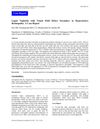 November 2017 in “Journal of Surgical Academia”
November 2017 in “Journal of Surgical Academia” Visual field defects in lupus nephritis can be caused by hypertensive retinopathy, not glaucoma or medication toxicity.
July 2009 in “International Journal of Cosmetic Science” Japanese women's curved hair has an uneven internal structure and varied amino acid composition.
1 citations,
September 2020 in “Leonardo” The exhibition made people think about ethics and society in relation to biotech advances.
January 2013 in “Wool textile journal” January 2012 in “Wool textile journal” 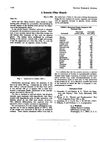 4 citations,
November 1968 in “Textile research journal”
4 citations,
November 1968 in “Textile research journal” Hair fibers may have a unique, non-protein sheath not previously identified.
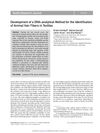 46 citations,
January 2009 in “Textile Research Journal”
46 citations,
January 2009 in “Textile Research Journal” Researchers developed a new method to identify animal hair in textiles, which is effective for various fibers and more reliable than previous methods.
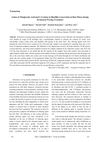 18 citations,
January 2008 in “Sen'i Gakkaishi”
18 citations,
January 2008 in “Sen'i Gakkaishi” Thioglycolic acid and L-cysteine change hair structure differently during perms, affecting hair strength and curling efficiency.
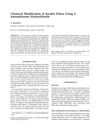 16 citations,
October 2003 in “Journal of applied polymer science”
16 citations,
October 2003 in “Journal of applied polymer science” 2-iminothiorane hydrochloride improves hair waving permanence without damage.
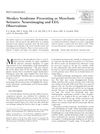 15 citations,
April 2007 in “Journal of child neurology”
15 citations,
April 2007 in “Journal of child neurology” An 11-month-old boy with Menkes disease had severe brain shrinkage and abnormal blood vessels, and didn't respond well to treatment.
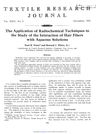 14 citations,
September 1954 in “Textile Research Journal”
14 citations,
September 1954 in “Textile Research Journal” Hair absorbs different substances from solutions based on pH levels.
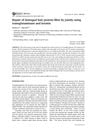 3 citations,
January 2021 in “ScienceAsia”
3 citations,
January 2021 in “ScienceAsia” Using an enzyme and keratin treatment can significantly repair and strengthen damaged hair.
 3 citations,
January 2009 in “Sen'i Gakkaishi”
3 citations,
January 2009 in “Sen'i Gakkaishi” Using both TGA and DTDG in hair straightening reduces hair damage compared to using TGA alone.
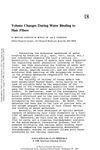 3 citations,
August 1980 in “Acs Symposium Series”
3 citations,
August 1980 in “Acs Symposium Series” Hair increases in size when it absorbs water, and treatments like bleaching affect how much water it can take in.
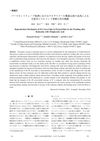 2 citations,
January 2015 in “Sen'i Gakkaishi”
2 citations,
January 2015 in “Sen'i Gakkaishi” Washing permed hair after using thioglycolic acid helps reform strong bonds, making hair stronger.

Minoxidil is better for female hair loss without hormonal issues, cyproterone acetate for those with; people with treated congenital heart disease have lower life quality; personality differs in types of infertility; oral terbinafine is best for toenail fungus; bladder training reduces incontinence; nurse clinics help with heart disease; weight loss improves body composition and liver disease; computer training cuts drug errors.
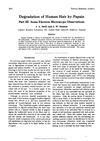 75 citations,
November 1965 in “Textile research journal”
75 citations,
November 1965 in “Textile research journal” Papain and bisulfite break down human hair by dissolving parts of it.
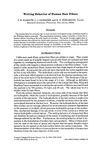 52 citations,
August 1978 in “Journal of Applied Polymer Science”
52 citations,
August 1978 in “Journal of Applied Polymer Science” Human hair's ability to get wet is complex and can change with treatments, damage, and environment.
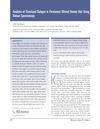 45 citations,
December 2006 in “Biopolymers”
45 citations,
December 2006 in “Biopolymers” Permanent waving weakens hair by altering its protein structure.
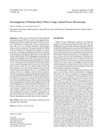 43 citations,
September 2001 in “Scanning”
43 citations,
September 2001 in “Scanning” Hair treatments like bleaching increase friction by exposing tiny pores on the hair surface.
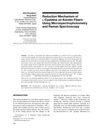 29 citations,
August 2005 in “Biopolymers”
29 citations,
August 2005 in “Biopolymers” L-cysteine slows down the breaking of bonds in hair due to electrostatic interactions.
 28 citations,
December 2011 in “Biocatalysis and biotransformation”
28 citations,
December 2011 in “Biocatalysis and biotransformation” PDI helps restore over-bleached hair's strength and structure by attaching special peptides.
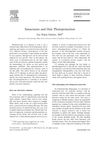 24 citations,
January 2006 in “Dermatologic clinics”
24 citations,
January 2006 in “Dermatologic clinics” Hair sunscreens are important for maintaining hair's cosmetic value.
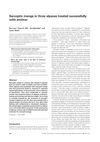 19 citations,
June 2007 in “Veterinary Dermatology”
19 citations,
June 2007 in “Veterinary Dermatology” Amitraz effectively treated sarcoptic mange in three alpacas.
 16 citations,
January 2017 in “Physical chemistry chemical physics/PCCP. Physical chemistry chemical physics”
16 citations,
January 2017 in “Physical chemistry chemical physics/PCCP. Physical chemistry chemical physics” The 3D structure of a key hair protein was modeled, revealing specific helical structures and stabilization features.






















